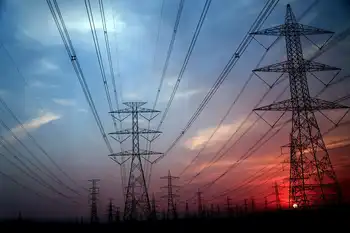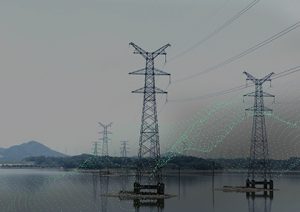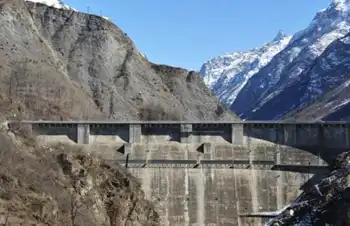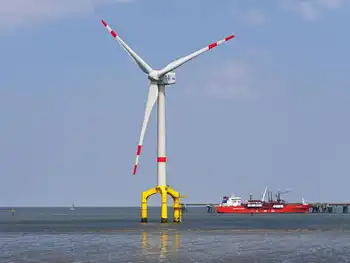US Termination of Ukraine Energy Grid Support signals a policy shift: USAID halts aid for grid restoration amid Russia attacks, impacting energy security, infrastructure resilience, winter readiness, and negotiations leverage with Moscow and allies.
Key Points
A US policy reversal ending USAID support for Ukraine's grid, impacting energy security, resilience, and leverage.
✅ USAID halt reduces funds for grid restoration and winter prep
✅ Policy shift may weaken Kyiv's leverage in talks with Russia
✅ Ukraine seeks EU, IFIs, private capital for energy resilience
The U.S. government has recently decided to terminate its support for Ukraine's energy grid restoration, a critical initiative managed by the U.S. Agency for International Development (USAID). This decision, reported by NBC News, comes at a time when Ukraine is grappling with significant challenges to its energy infrastructure due to ongoing Russian attacks. The termination of support was reportedly finalized before Ukrainian President Volodymyr Zelensky's scheduled visit to Washington, marking a significant shift in U.S. policy and raising concerns about the broader implications for Ukraine's energy resilience and its negotiations with Russia.
The Critical Role of U.S. Support
Since Russia's invasion of Ukraine, the country’s energy infrastructure has been one of the primary targets of military strikes. Russia has launched numerous attacks on Ukraine's power generation facilities, substations, and power lines, causing power outages across multiple regions. These attacks have led to significant material losses, with damage reaching billions of dollars. As part of its commitment to Ukraine, the U.S. government, through USAID, had been instrumental in funding restoration efforts aimed at rebuilding and reinforcing Ukraine’s energy grid.
USAID's support was crucial in helping Ukraine withstand the damage inflicted by Russian missile strikes. This aid was not just about restoring basic services but also about fortifying the energy grid to ensure that Ukraine could continue functioning amidst the war and keep the lights on this winter as temperatures drop. The U.S. contribution to Ukraine's energy sector, alongside international support, helped reduce the immediate vulnerabilities faced by Ukraine's civilians and industries.
The Abrupt Change in U.S. Policy
The decision to cut support for energy grid restoration is seen as a sharp reversal in U.S. policy, particularly as the Biden administration has previously shown strong backing for Ukraine in the aftermath of the invasion. This shift in policy was reportedly made by the U.S. State Department, which directed USAID to halt its involvement in the energy sector.
According to NBC News, USAID officials expressed concern about the timing of this decision. One official noted that terminating support for Ukraine’s energy grid restoration would severely undermine the U.S. government's ability to negotiate on issues like ceasefires and peace talks with Russia. The official argued that such a move would signal to Russia that the U.S. is backing away from its long-term investments in Ukraine, potentially weakening Ukraine's position in the ongoing war.
The abrupt end to this support is also seen as a blow to the morale of Ukraine’s government and people. Ukraine had been heavily reliant on the U.S. for resources to repair its critical infrastructure, and the decision to cut this support without warning has created uncertainty about the future of such recovery efforts.
Ukraine’s Response and Search for Alternatives
In response to the termination of U.S. support, Ukrainian officials have been seeking alternative sources of funding to continue the restoration of their energy grid. Deputy Prime Minister Olha Stefanishyna reported that Ukraine has already reached preliminary agreements with other international partners to secure financial support for energy resilience, cyber defense, and recovery programs including new energy solutions for winter blackouts.
These efforts come at a time when Ukraine is working to rebuild its war-torn economy and safeguard critical sectors like energy and infrastructure. The termination of U.S. support for energy restoration projects underscores the growing pressure on Ukraine to diversify its sources of aid and not become overly dependent on any one nation. Ukrainian leaders are in ongoing talks with European governments, international financial institutions, and private investors to ensure that essential programs do not stall due to the lack of funding from the U.S., as energy cooperation grows and Ukraine helps Spain amid blackouts in solidarity.
Implications for Ukraine’s Energy Security
Ukraine's energy security remains a critical issue in the context of the ongoing conflict with Russia. The war has made the country’s energy infrastructure vulnerable to repeated attacks, and the restoration of this infrastructure is essential for ensuring that Ukraine can keep the lights on and recover in the long term. The U.S. has been one of the largest contributors to Ukraine's energy security efforts, and its withdrawal could force Ukraine to look for other partners who may not have the same level of financial or technological resources.
This development also raises questions about the future of U.S. involvement in Ukraine's recovery efforts more broadly. As the war continues and winter looms over the battlefront for frontline communities, the need for reliable and sustained support from international partners will only increase. If the U.S. significantly scales back its aid, Ukraine may face even greater challenges in maintaining its energy infrastructure and achieving long-term recovery.
Moving Forward
The termination of U.S. support for Ukraine’s energy grid restoration serves as a reminder of the complexities involved in international aid and geopolitics during wartime. As Ukraine faces the ongoing realities of the war, it must adapt to a shifting international landscape where traditional allies may not always be reliable sources of support. Ukraine’s leadership will need to be strategic in its search for alternative sources of aid, while also focusing on strengthening its energy grid, managing electricity reserves to stabilize supply, and reducing its vulnerabilities to Russian attacks.
While the end of U.S. support for Ukraine's energy restoration is a significant setback, it also underscores the urgent need for Ukraine to diversify its international partnerships. The future of Ukraine’s energy resilience may depend on how effectively it can navigate these changing dynamics while maintaining the support of the international community in the fight against Russian aggression.
Related News












